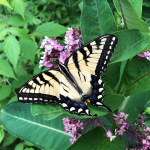Hydroponic gardening is the art and science of growing plants without soil. For hundreds of years mediums other than soil have been used with great success to grow plants. Today hydroponic trends include succulents growing vertically as living walls and room dividers and roof top plantings designed by landscape architects to absorb rainwater run-off and flourish with little or no maintenance. Both ideas are visually interesting and eco-friendly.
Some examples of soil substitutes include: Peat, water, rocks and pebbles, constant temperature control in a greenhouse, volcanic ash and vermiculite. A few of the many advantages of growing in a soilless medium is the higher rate of growth potential and crop yield with less work, and very little, if any watering requirements.
Vegetables may also be grown in soil-free mediums. Compact crops such as cherry tomatoes, cucumbers, strawberries and vegetables such as string beans that grow from vines are ideal, as well as trailing and hanging drought tolerant plants. Plants with minimal root space requirements always do best. Root veggies such as carrots and potatoes are hard to grow in hydroponic containers as they need a lot of vertical room to expand. Heavy veggies such as large squashes and top heavy stalks of corn are not practical choices for alternate medium gardening and should be avoided.
Close monitoring of the growing conditions during the first few weeks of hydroponic gardening is a must to ensure that the plants are properly established. During this time make sure the plants are receiving adequate light, moisture and temperature. Roots must be kept moist but not wet (unless of course you are growing in water.) If you are not growing in water take extra precautions to avoid dehydrating the plants. Hydroponic plants in soil substitutes are more susceptible to scorching from the sun. As long as the plants are adequately hydrated, there should not be a problem with scorched plants.
For more information or help along the way, consult your state university’s Master Gardener Volunteer Program for guidance.
New England University Master Gardener website links:
New Hampshire: extension.unh.edu/Agric/AGMastGD.htm
Maine: umaine.edu/gardening/programs/master-gardeners/
Vermont: uvm.edu/mastergardener/
Massachusetts: www.umassextension.org/index.php/information/gardening
Connecticut: ladybug.uconn.edu/mastergardener/howto.html
Rhode Island: uri.edu/ce/ceec/mastergardener.html







